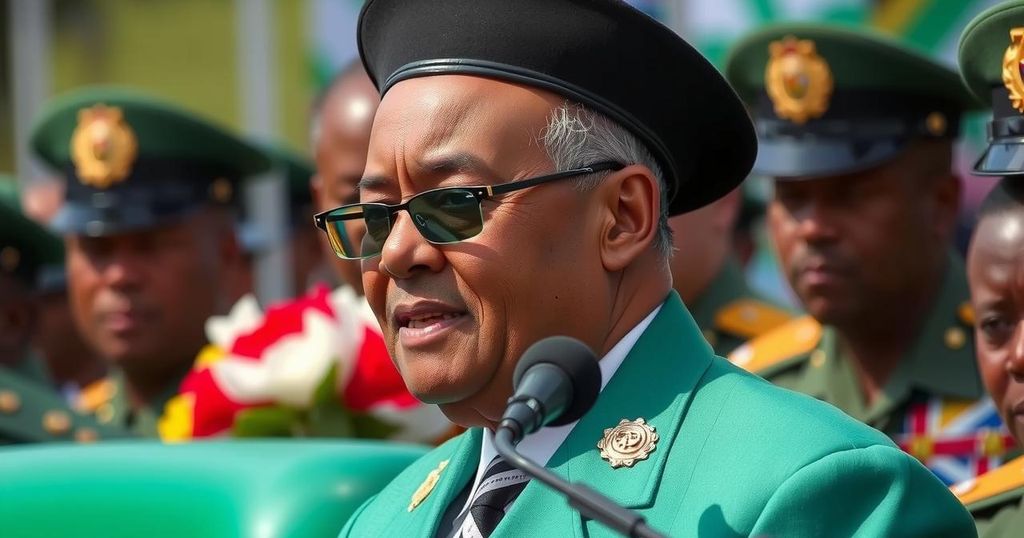Suriname Declines State Funeral for Ex-Dictator Desi Bouterse

Suriname has ruled out holding a state funeral for former President Desi Bouterse, who died as a fugitive facing serious criminal convictions. Foreign Minister Albert Ramdin announced that, despite Bouterse’s previous position, there will be no national mourning. Flags will be flown at half-staff on the day of his funeral, the date of which remains unspecified, illustrating the complexity of his legacy and public sentiment surrounding his rule.
On December 28, 2024, Suriname’s Minister of Foreign Affairs, Albert Ramdin, announced that the government will not conduct a state funeral for former President Desi Bouterse, who passed away recently while evading justice. As stated by Ramdin, the current President, Chan Santokhi, decided this following legal advice and his governmental prerogatives. Bouterse, aged 79 at the time of his death, was a controversial figure; he orchestrated two military coups during his political career and faced various legal convictions, including serious charges such as drug trafficking and murder. Despite this, he maintained significant support among impoverished communities in Suriname. While no formal period of national mourning will be observed, Ramdin noted that flags will be flown at half-staff at government buildings on the day of Bouterse’s funeral, which has yet to be scheduled. The circumstances surrounding his death were investigated, and preliminary findings by police indicated no evidence of foul play.
Desi Bouterse was a pivotal yet polarizing figure in Surinamese history, having transitioned from military leadership to elected presidency. His rule was marked by human rights abuses and economic challenges. Following his election in 2010, he held power until 2020, when he lost re-election amid widespread scrutiny of his past actions. His recent death, while hiding from authorities due to multiple convictions, has prompted significant discourse regarding his legacy, the respect afforded to former leaders, and the government’s decision on his funeral arrangements. The subsequent public reaction reflects a complex interplay between historical reverence and justice.
The Surinamese government’s decision to deny a state funeral for Desi Bouterse encapsulates the contentious nature of his legacy. While he was elected president, his actions during his rule have left an indelible mark on the nation’s history. The decision indicates a conscious choice to distance the current administration from past injustices, while also acknowledging the conflicting views surrounding Bouterse’s impact on Suriname.
Original Source: www.jamaicaobserver.com







